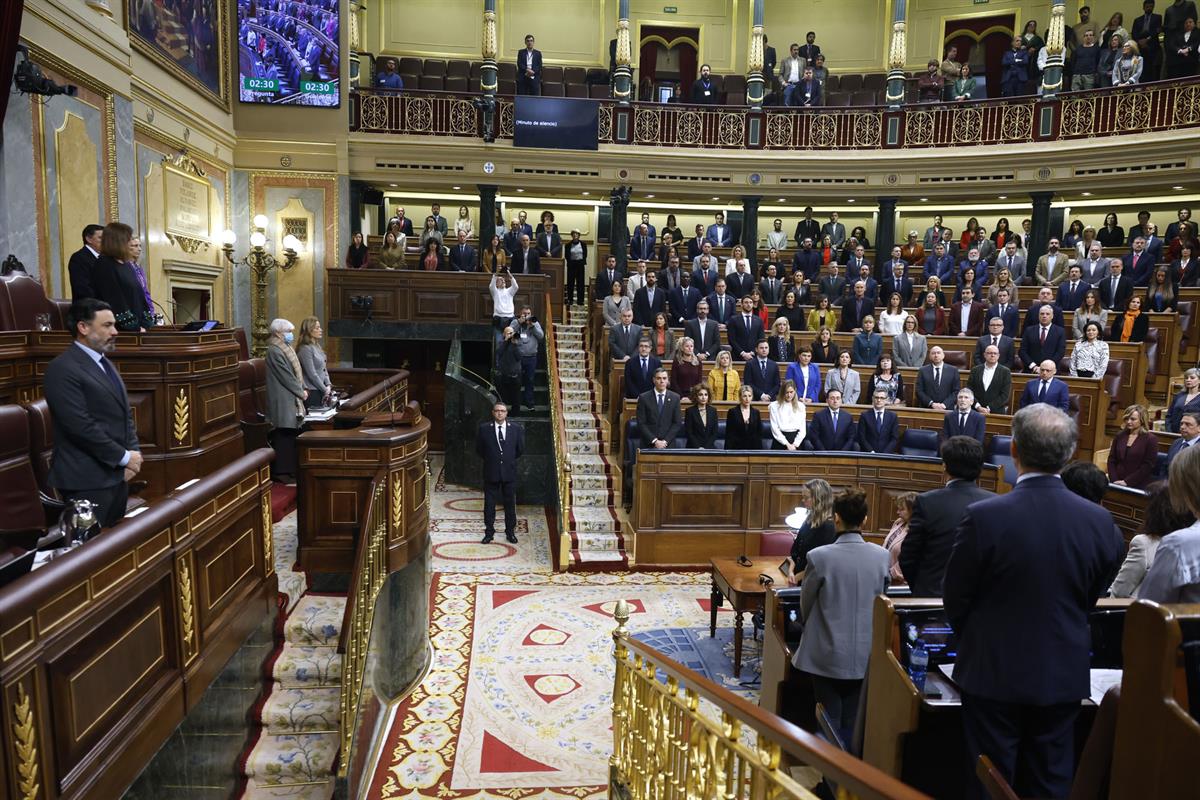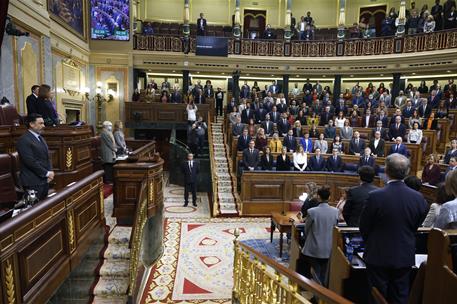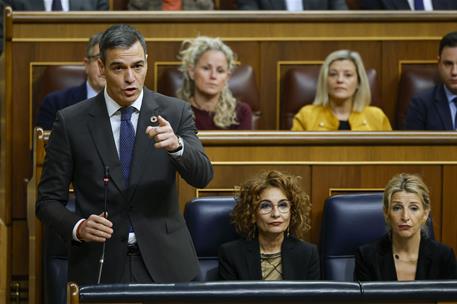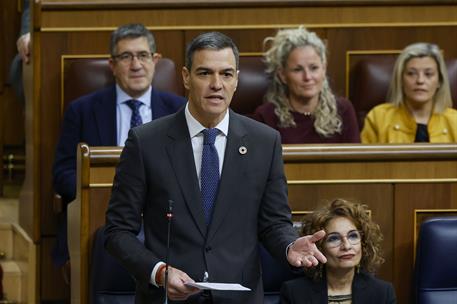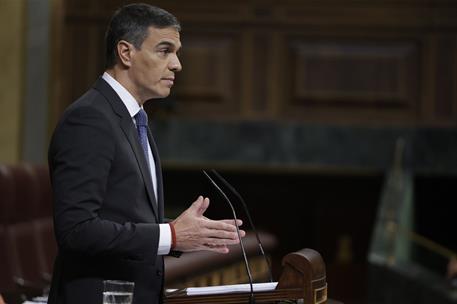Government control session in the Lower House of Parliament
Pedro Sánchez highlights the Government's contribution to the "strengthening and modernisation" of the judiciary
President's News - 2024.12.18
Minute of silence at the beginning of the control session in memory of the victim of the last case of gender violence that took place in the Murcian town of Cartagena | Agencia EFE. 2024.12.18
Lower House of Parliament, Madrid
During the control session in the Lower House of Parliament, Pedro Sánchez assured that "this government has contributed to strengthening and modernising the justice service in our country." He backed this up "with facts and figures," in response to a question from Alberto Núñez Feijóo, a member of the People's Parliamentary Group.
Among this data, the head of the Executive pointed out the 31% increase in investment in Justice, the increase in the number of judges and prosecutors by 1,260 from 2019 to 2023, and the investment of 1.2 billion euros in digitising the justice service.
"As a result of all this, and of many other things that this government is doing, Spain has climbed the most reputable international rankings in terms of democratic quality and institutional quality," said Pedro Sánchez. He also stressed that Spain has greater social welfare, improvements in gender equality, environmental sustainability, employment and economic growth.
In this respect, the president of the Government of Spain recalled that the Bank of Spain has raised the forecasts for economic growth in our country to 3.1 per cent.
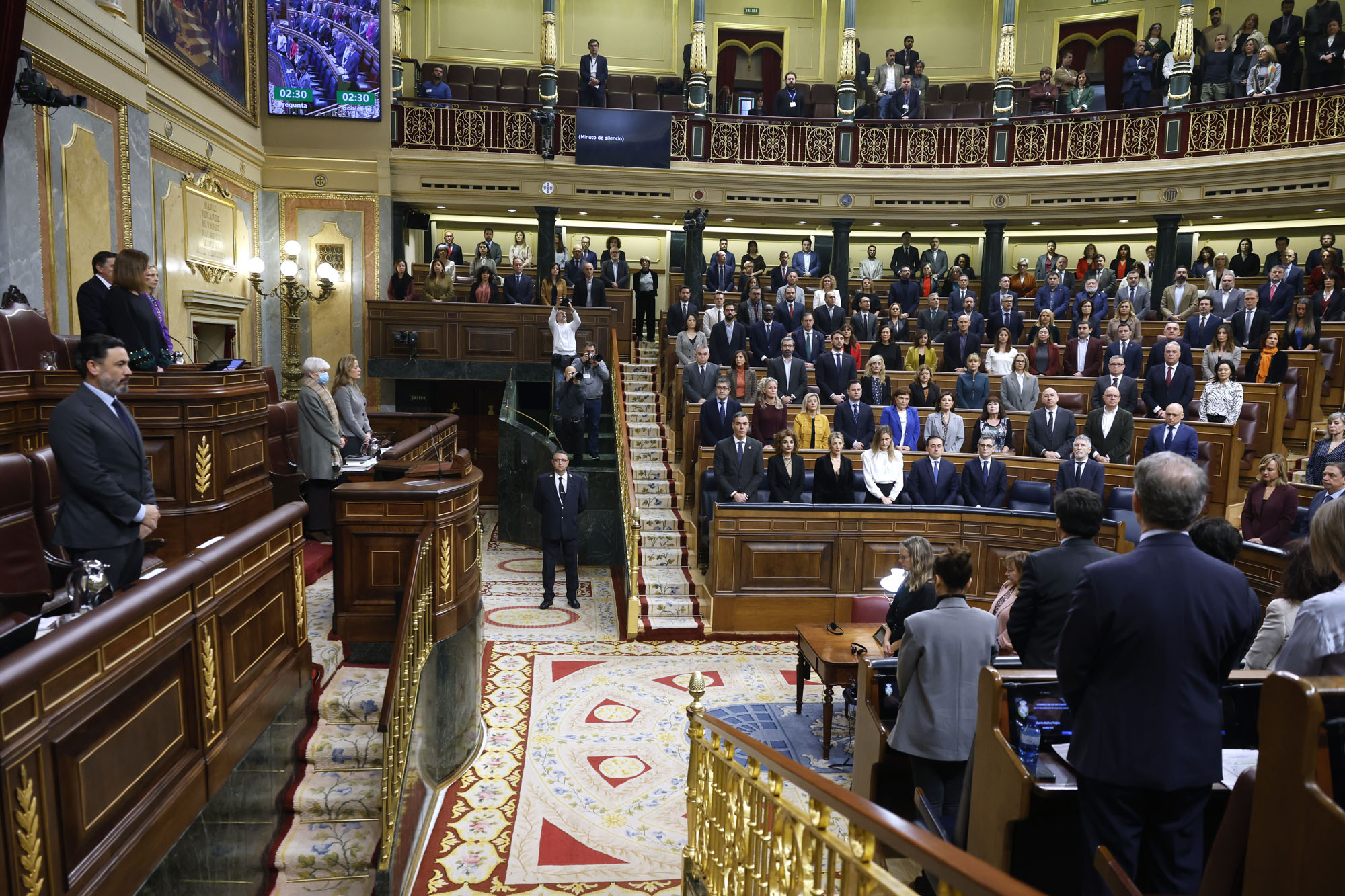 Minute of silence at the beginning of the control session in memory of the victim of the last case of gender violence that took place in the Murcian town of Cartagena | Agencia EFE
Minute of silence at the beginning of the control session in memory of the victim of the last case of gender violence that took place in the Murcian town of Cartagena | Agencia EFE
The control session in the Lower House began with a minute's silence in homage to the latest victim of male violence.
A "consistent" migration policy
In his response to the question on the migration challenge posed by Aitor Esteban, a member of the Basque Parliamentary Group (EAJ-PNV), the president assured that over the last six years the Government has deployed a "consistent" migration policy, and highlighted as an achievement the agreement reached during the Spanish presidency of the Council of the European Union to apply the Immigration and Asylum Pact.
Pedro Sánchez recalled that, although the implementation of this Pact was planned for 2026, the Government of Spain has requested that its application be brought forward to 2025, in order to "have tools that allow us to manage our borders much more effectively and to promote development and cooperation with the source and transit countries."
On this point, the president recalled the main lines of work which he explained in his address to the Lower House on 9 October: strengthening borders and the reception system; greater involvement of the European Union, as demonstrated by the Migration and Asylum Pact; a commitment to legal, safe and orderly migration; greater social integration of migrants, reflected in the inclusion plan proposed to the communities at the Santander Conference of Presidents; and support for source countries.
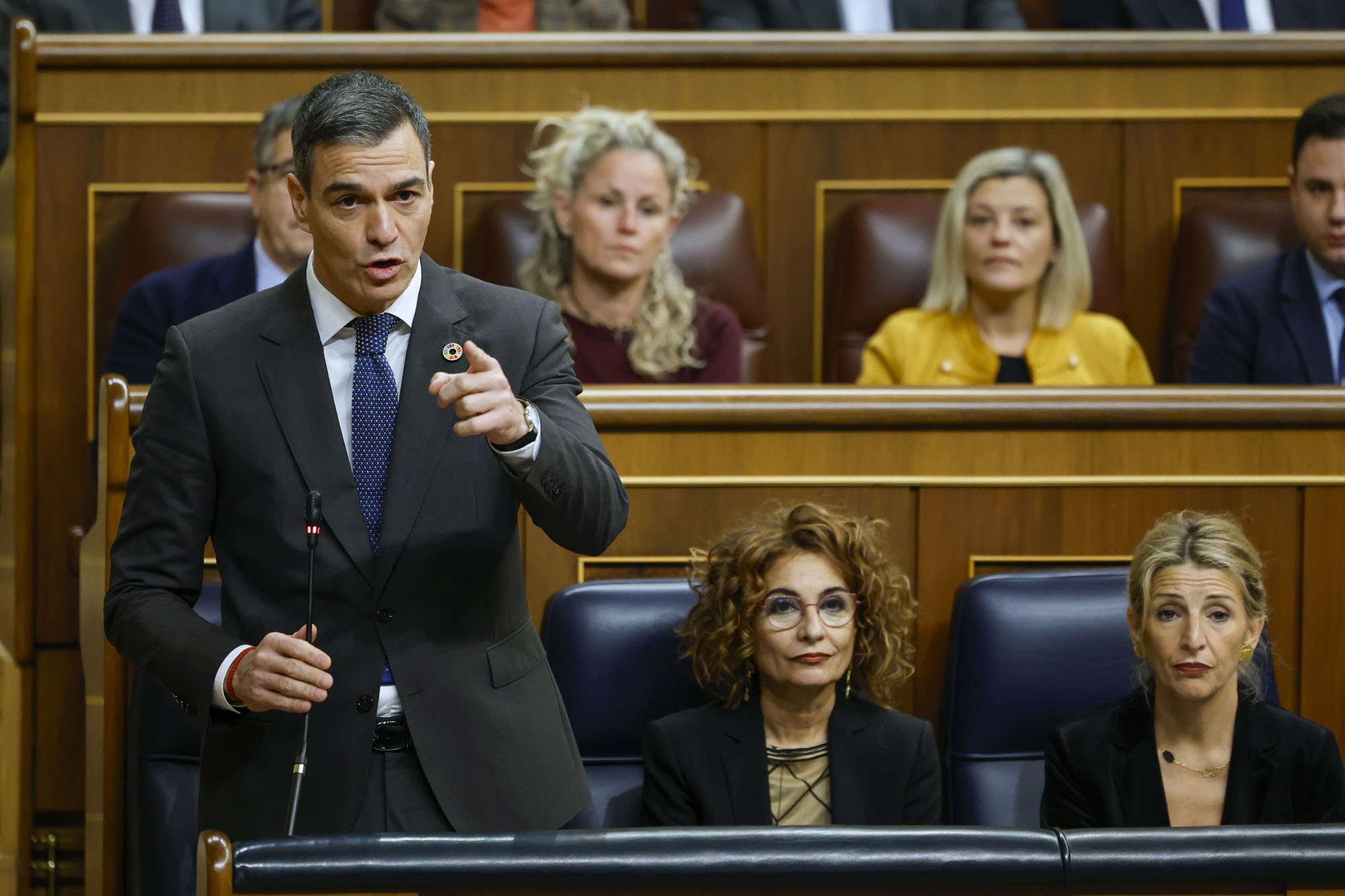 The President of the Government of Spain, Pedro Sánchez, during his speech at the control session in the Lower House of Parliament | Agencia EFE
The President of the Government of Spain, Pedro Sánchez, during his speech at the control session in the Lower House of Parliament | Agencia EFE
Progress on the Canary Islands agenda
The leader of the Executive also addressed the issue of migration in his response to Cristina Valido, a member of the Joint Parliamentary Group, in which he referred to the situation of unaccompanied foreign minors in the Canary Islands and backed the Government's commitment to shared responsibility among the autonomous communities, whether they have arrived or not, in this matter.
Pedro Sánchez assured that, although there is still a long term of office left, the Canary Islands agenda "is advancing at a good pace" and listed, among other examples of this progress, the extension of the 60% personal income tax rebate on the island of La Palma; the improvement of the consultation system on any modification that affects the economic and fiscal regime of the Canary Islands; and the promotion of the participation of Canary Islands representatives in summits such as those held between Spain and Morocco.
Non official translation
